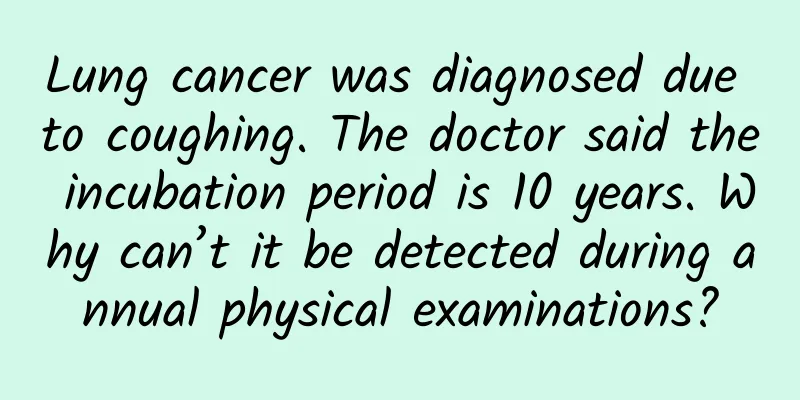World Kidney Day | "Silent Thief" - Dent disease that "steals" kidney function

|
If your child has unexplained foamy urine, recurrent kidney stones, or easy fractures, he or she may have Dent's disease. Dent's disease is a rare hereditary kidney disease that affects only 1 to 3 people per million worldwide. It was first discovered by British doctor Dent in 1964, hence the name. Symptoms of Dent's disease The early symptoms of Dent disease are not easy to detect, but parents should pay special attention if their children have the following symptoms. (1) Foamy urine: There are small bubbles in the urine like beer foam, which do not disappear for a long time. (2) Kidney stones: The calcium content in urine is too high, which is easy to form stones, and may cause back pain and hematuria. (3) Easy fractures: Calcium is lost from the urine, and the bones become brittle. Children may fracture their bones with a slight collision, or even develop rickets. (4) Decreased kidney function: If this continues for a long time, there may be increased nocturia and increased creatinine, and in severe cases, kidney failure. (5) Other problems: A small number of children may have neurological abnormalities, such as developmental delay, epilepsy, etc. Causes of Dent disease Dent disease is related to gene mutation and is an X-linked recessive genetic disease (in simple terms, the pathogenic gene is on the X chromosome, and boys are more likely to develop the disease). About 60% of patients are caused by CLCN5 gene mutations, which help the kidneys "recycle" proteins, calcium and other substances in the urine. Once there is a problem with the gene, these substances will leak into the urine, causing problems such as stones and osteoporosis. About 15% of patients are related to OCRL1 gene mutations (such patients may also have problems with the eyes, brain, etc., which is called Lowe syndrome). Women are usually carriers and have no symptoms; male patients account for the vast majority. How to catch this "silent thief" Doctors use a combination of symptoms and an examination to make the diagnosis. 1. Urine test: Check for low molecular weight proteinuria (such as β2 microglobulin) and hypercalciuria. 2. Blood test: hypophosphatemia and abnormal vitamin D metabolism may occur. 3. Genetic testing: The most accurate diagnostic method that can directly detect mutations in the CLCN5 or OCRL1 genes. 4. Imaging examination: Ultrasound or CT scan to check for kidney stones and renal calcification. How to deal with Dent disease? There is currently no specific treatment for Dent's disease, but scientific management can protect kidney function. (1) Dietary adjustment: low-salt diet, eat a moderate amount of high-quality protein (such as eggs, fish), avoid excessive calcium or vitamin D supplementation, drink plenty of water, and reduce the risk of stones. (2) Regular follow-up: check urine routine, kidney function, and electrolytes every 3 to 6 months, and take calcium-lowering or kidney-protecting drugs as recommended by the doctor. (3) Avoid factors that damage the kidneys: do not take painkillers, folk remedies, or other drugs that may damage the kidneys. (4) Genetic counseling: couples with a family history are advised to do genetic testing before pregnancy to reduce the risk of the child's disease. (Author: Jia Lili and Qi Jiwei, Department of Pediatrics, Eastern Theater Command General Hospital) |
<<: How to turn a "liver party" into a healthy feast? Master these key points and do it!
>>: World Kidney Day | Scientific management strategies for renal cysts
Recommend
What parents need to know about their children's growth
Every spring is called the growing season. For ch...
How to solve the strong smell below
We all know that a woman's private part is a ...
Can I eat boiled eggs during my period?
Menstruation is a special period that every adult...
Brain injury recovery tips: Unlocking key skills such as breathing, vision, and self-care
Author: Zhang Hao, Chief Physician, China Rehabil...
What can I eat to supplement my uterus?
Most women want to know what to eat to relieve ut...
It doesn’t matter if you don’t eat marine fish, these 8 kinds of freshwater fish are also good for supplementing DHA, highly recommended!
Marine fish are rich in nutrients, but many peopl...
How to have a son
Now is the era of having two children. Some peopl...
Pinching nipples can stimulate uterine contractions
As we all know, female uterine contractions are a...
Can I get pregnant if my period is delayed for 5 days?
Many unmarried women are worried about one issue,...
Does taking diet pills have any effect during pregnancy?
Nowadays, many people want to lose weight. There ...
What causes brown spots around breasts?
Healthy breasts are round, shiny, firm and uprigh...
Why can't I move my neck when I wake up?
Review expert: Wang Linyu, deputy chief physician...
How to reduce cesarean section scars
Although many women now choose cesarean section a...
What are the benefits of eating during menstruation for women
Women are very sensitive during menstruation, and...
Will having sex the day before your period delay your period?
A woman's ovulation period is a few days befo...









